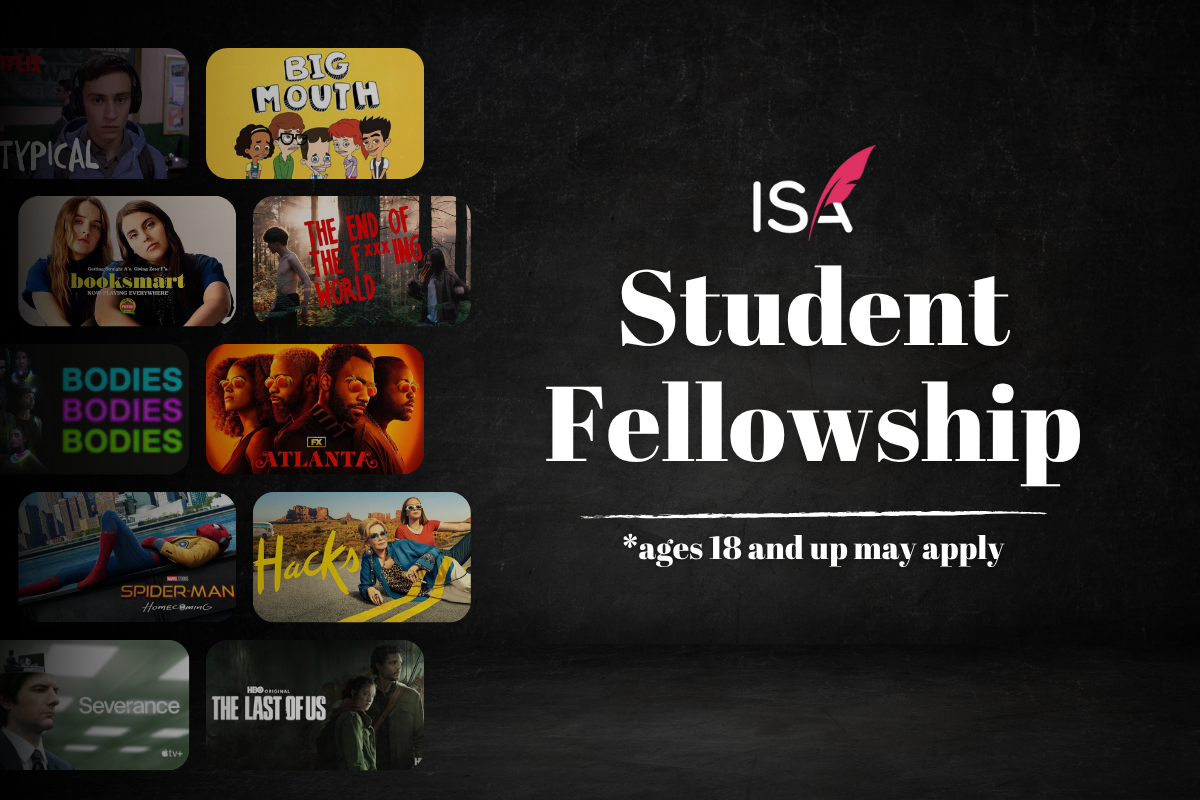The Truth About Screenwriting Contests: Confessions of a Writer Turned Contest Executive
Script Pipeline executive Bri Janes offers four hard truths about screenwriting contests.
When I started out in the entertainment industry as a young screenwriter, I did everything I was “supposed to” in order to break in. I went to film school. I made connections. I submitted to every contest and fellowship I could find: Nicholl, The Black List, Austin Film Festival, Script Pipeline, PAGE, Warner Brothers/Disney, Slamdance, The Tracking Board (RIP), Screencraft (also RIP)…
You name it, I submitted to it.
Through the rejections, I kept grinding and honing my craft. I ended up placing as a semifinalist or a finalist in several major competitions. One of my pilots was a Black List Recommended project. My successes landed me a few general meetings (as well as my current job at Script Pipeline), but I still hadn’t found representation. That all-important option or spec sale eluded me.
With each roadblock, I grew more sour and cynical. My writing was good enough to succeed in contests, so why couldn’t I get to the next step? Was I just unlucky? Unlikeable? Unmarketable? Are screenwriting contests really worth it?
Seeing the business from both sides—the writer who submits scripts to contests, and as the judge who reads them—has given me a unique perspective on how things work behind the scenes.
Here are some hard truths I’ve learned:
Truth #1: Corporations Ruin Everything
Contests and fellowships have been a great equalizer for writers without independent wealth or Hollywood connections. These opportunities are rapidly disappearing, thanks in part to corporate consolidation. Where there were once dozens, if not hundreds, of independent production companies looking for new scripts, many have been absorbed into the big studios and streamers, narrowing the funnel into fewer and fewer. Or they've been closed off to queries.
This ultimately means less places to send your scripts.
The wave of Hollywood mergers and acquisitions has hit screenwriting competitions and fellowships as well. Cast and Crew—the parent company of Coverfly, FilmFreeway, Screencraft, and Final Draft—is (as of the writing of this article) in the process of shutting down some of its competitions and platforms. One of the industry’s historically most respected fellowships, the Academy Nicholl Fellowship, so it appears, no longer accepts submissions outside of select academic partnerships or through the Black List.
As a result of these consolidations, more scripts are being read by less readers, removing crucial avenues for new and underrepresented writers to get their work seen by fresh eyes at a price they can afford.
Seasoned writers still trying to get their footing know the score. We signed up for astronomical odds. But there’s a big difference between a moonshot and no shot at all.
Truth #2: “Never Tell Me the Odds”
If they're doing it the right way, contests are usually run by a small team of highly dedicated people who genuinely want to help writers succeed, but we can only do so much and maintain a high level of attention to individual writers. Out of the thousands of entries submitted to competitions each year, not many get optioned, and only a handful find a rep.
Those are pretty tough odds, and those odds only get tougher the more expensive a script is to produce.
Fortunately, at Script Pipeline, we’ve managed to defy the odds by sticking to what works—finding truly unique voices and taking a chance on them—and have cultivated a roster of incredible writers who succeeded despite the hurdles. In the last five years, at least 20 of our writers have secured representation at top management companies and agencies like Bellevue, Kaplan Perrone, and UTA. Our former finalists have sold and produced their scripts (Visitation and Getaway, both coming soon!), sold two seven-figure specs (Snow White and the Huntsman in 2010 and Bring Me Back in 2020), and have received dozens of options and shopping agreements, plus, we'd estimate, hundreds of industry meetings over the past few decades.
Truth #3: It’s Who You Know, Not Necessarily What You Win
The entertainment industry has always been built on relationships. How many writers do you know that have gotten repped, been hired on a TV writing staff, or landed a rewrite gig directly from a contest? How many do you know that have gotten the same jobs from friends, former colleagues, or referrals?
If you’ve been in this business long enough, and talked to many TV writers in recent years, you know it can be a mix of both. But everything boils down to relationships, in whatever form they take.
Over the last 25 years, Script Pipeline has built strong partnerships with reps and producers. We also prioritize long-term career development by working with writers long after they place in our contests, knowing full well it's a long game dependent on timing, and you never know when a particular script will land.
Many of our finalists have gotten their first manager, or produced their first film, with a script they never entered into our competitions. Our network has been key to that success. Your own network can be, too.
Truth #4: Some Scripts are ... Not Great (on a basic level)
Believe me. I know. I’ve gone through tens of thousands of them.
You would be amazed at how many contest submissions are unformatted, poorly written, or littered with spelling/grammatical errors. Some have total rip-off concepts, uninteresting characters, and boring storylines.
If you’ve proofread your script, written a fairly original concept, and your characters are half decent and half-compelling? Chances are, you’re advancing a lot further than you think. It doesn't mean that's the bar to get you repped, but you're outshining a lot of other newer screenwriters.
Rather than waste your time listing out tips on how to capture a reader’s eye, I’ve decided to leave you with two beginnings of a script (which I made up, no copyright infringement!).
Which one makes you want to read the rest?
Example #1
EXT. FARM – DAY
There’s a pasture, a barn, and a set of hay bales. ANGLE ON: Farmhouse. John is a farmer looking out at a sunrise and talking to his wife Martha. They’ve been struggling for a long time, and are wondering how they’re going to make it.
JOHN
We’re in trouble, Martha.
MARTHA
What are we going to do, John?
JOHN
I don’t know.
Example # 2
EXT. FARMHOUSE – DAY
Dawn breaks over a small family farm. JOHN (50s), a man hardened by hard times, surveys his land from his porch.
An old barn. A brown pasture. A lone cow with its ribs sticking out, chewing its cud. The remnants of a corn crop, coated with dust.
MARTHA (O.S.)
You gonna fix up that barn by scowling at it?
MARTHA (40’s, the picture of a doting wife), approaches John from behind, holding his morning coffee.
JOHN
Maybe.
If you answered #2, you’re probably ready to submit to a contest—to at least get a gauge of where you stand amongst other writers at or near your level.
Anything you can do to make your script clean, crisp, and visually pleasing to the eye adds to your advantage with your readers.
When it comes to the story: captivate us. Surprise us. Most importantly, do not bore us. If you can do that, I guarantee you'll advance beyond the initial rounds.
May the odds be ever in your favor.







